Ian Brady death: 'Lost chance' to find Keith Bennett's body
- Published
Daniel Sandford looks back at the revulsion caused by Brady's crimes
The brother of Moors Murders victim Keith Bennett feels he has lost the opportunity to find his remains, the family's solicitor has said.
Alan Bennett told John Ainley he felt no sense of celebration following the death of Ian Brady on Monday.
Brady, 79, tortured and killed five children with Myra Hindley.
But he never revealed where Keith's remains were buried, though Keith's mother Winnie Johnson, who died in 2012, had begged Brady to do so.
Writing on Facebook, Alan Bennett, who runs a website, Searching for Keith, in a continuing attempt to locate his brother's body, said: "We will carry on doing whatever we can to bring Keith home".
He said support from well-wishers "means more than I could ever put in to words".
Brady, who was jailed in 1966, buried four of his victims in graves on Saddleworth Moor, Greater Manchester.
He died at Ashworth Hospital, a secure psychiatric unit in Merseyside where he had been detained since 1985.
A Mersey Care NHS Foundation Trust spokesman said Brady had died at 18:03 BST on Monday.
An inquest into his death is due to be opened at Southport Town Hall later.
Brady, who was born in Glasgow but later moved to Manchester, was jailed at Chester Assizes 51 years ago for the murders of John Kilbride, aged 12, Lesley Ann Downey, 10, and Edward Evans, 17.
In 1985 he also admitted to the murders of Pauline Reade, 16, and Keith Bennett, who was 12.
Body never found
The children had been abducted by Brady and his lover Hindley, who died in prison in 2002, between 1963 and 1965.
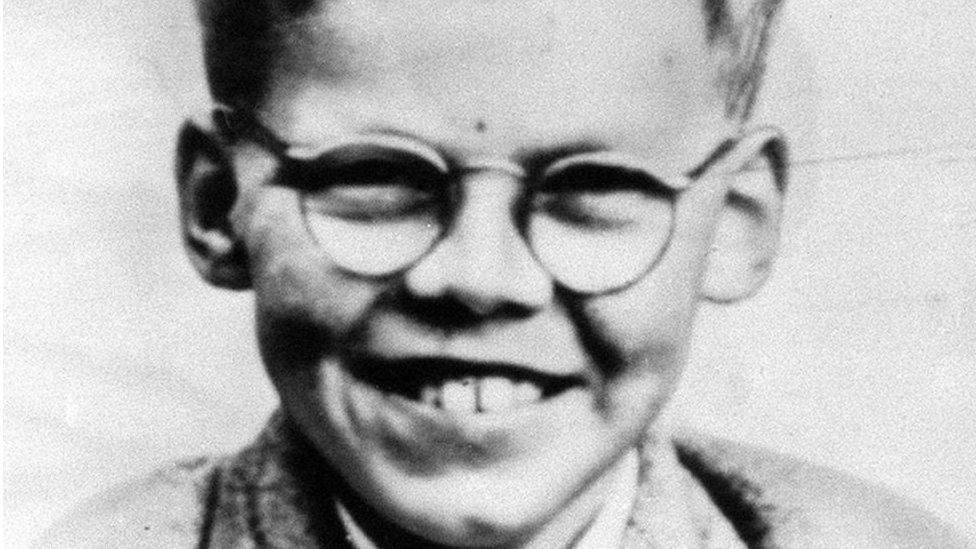
Brady never revealed where Keith Bennett's remains were buried
Robin Makin, who was Brady's solicitor for 25 years, told BBC Radio 4's Today programme he was with his client in hospital less than two hours before his death.
"I got a call that he wanted to see me - he was obviously well aware that his death was imminent," he said.
He described the encounter as "quite a moving sort of situation", where the pair discussed Brady's legal affairs and funeral arrangements.
He said the whereabouts of Keith Bennett's remains did not come up in conversation.
"I would be very surprised if he really had information that was useful," he said.
"He did go to the Moors a long time ago and I suspect that if there had been information for him that he could have provided, he would have provided it then."
Describing coverage of the search for Keith's body as a "frenzy", he said: "I would very much hope that the remains can be found, but unfortunately I haven't got any information that's going to assist."
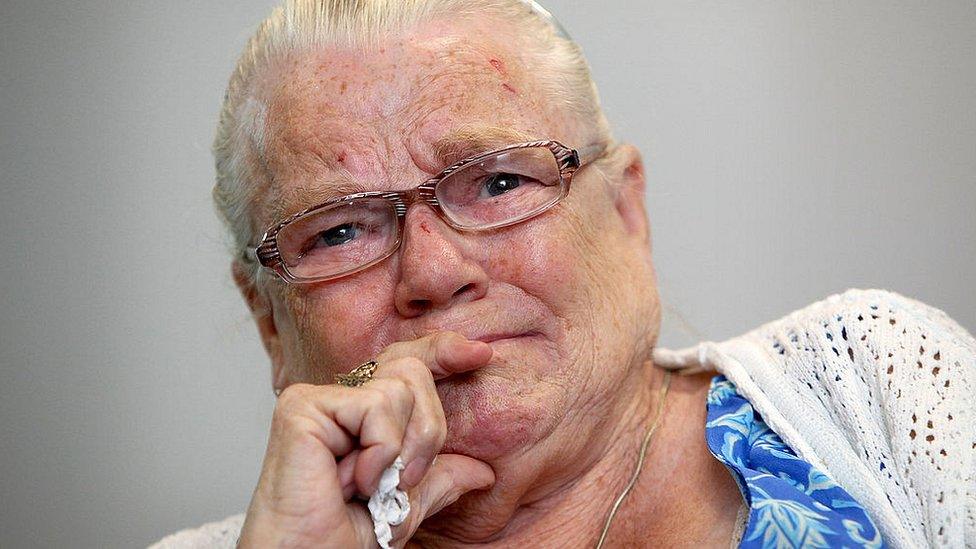
Keith's mother Winnie Johnson, pictured here in 2009, never gave up on the search
Brady and Hindley were caught when her brother-in-law David Smith, who was a petty criminal, phoned the police after seeing Brady abuse and strangle Edward Evans.
The officers caught Brady and Hindley at home, retrieving Edward's body from the bedroom, along with Brady's library of volumes on perversion and sadism.
'Aware of imminent death'
Martin Bottomley, the head of Greater Manchester Police's cold case unit, said the force would never give up the search for Keith and Brady's death did "not change that".
He said: "Our aim, as it always has been, is to find where Keith is buried and give closure to his surviving family members so they can give Keith the proper burial they so desperately want.
"Whilst we are not actively searching Saddleworth Moor, we will act on credible and actionable information that will help lead us to him."
Ch Insp Ian Hanson, chair of the Greater Manchester branch of the Police Federation, said: "Having grown up in that part of Manchester where Brady and his cohort committed these terrible crimes, I know first-hand the impact this had on decent young families.
"We couldn't even play in the street unless somebody's mum could see us from the window.
"He now takes his place in hell and he can rot there and as far as I am concerned.
"Ashworth Hospital can leave him out for the bin men."
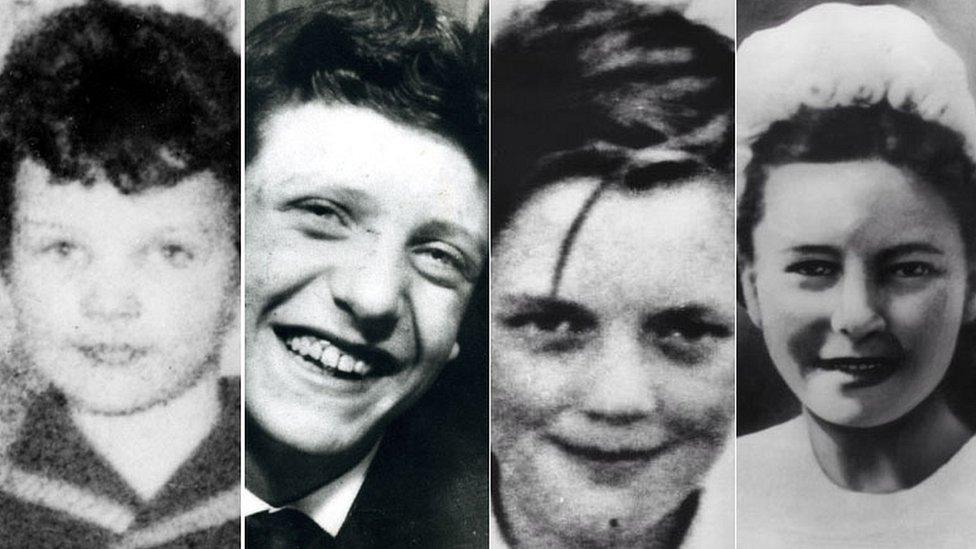
Lesley Ann Downey, Edward Evans, John Kilbride and Pauline Reade were among the victims
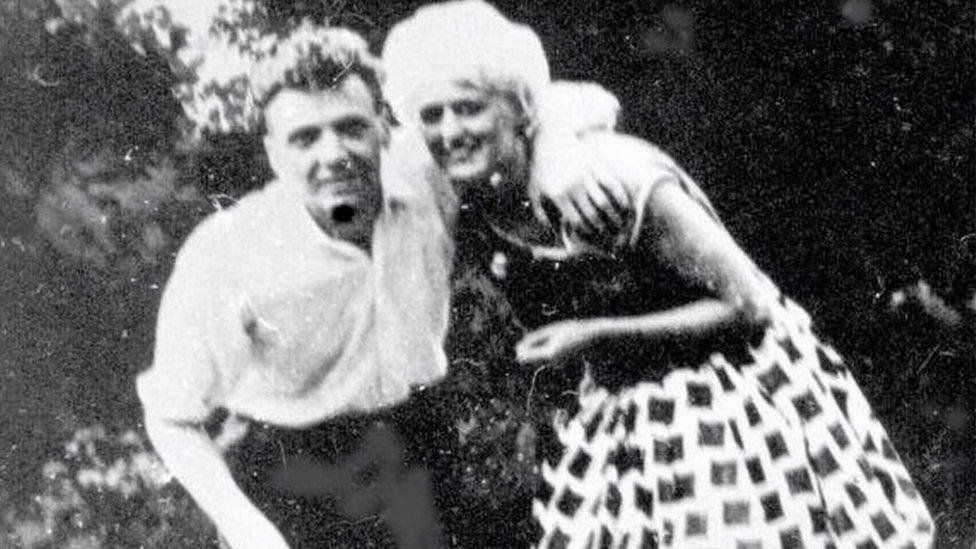
Brady and Hindley murdered five children in the 1960s
In 2012 Brady's health advocate, Jackie Powell, was questioned by police after she told a television documentary Brady had given her a sealed envelope to pass to Mrs Johnson in the event of Brady's death.
The letter was never found.
John Kilbride's brother, Terry, told the Sun newspaper: "It's been years and years of anguish and pain for us and the families of the victims.
"He's dead but we will have to still live with the nightmare that he left behind."
Speaking about the case of victim Lesley Ann Downey, former police officer Norman Brennan told of the "grief and torment" he had seen on the faces of her mother and father.
Police found photographs of the naked 10-year-old, along with tape recordings of her final moments pleading for her life as she was brutally abused.
Mr Brennan told BBC Two's Newsnight: "To know that your daughter was lost, alone and murdered and then actually her death was recorded, the grief can never ever be etched from your mind.
"Those two individuals, Myra Hindley and Ian Brady, they didn't just destroy five young children's lives.
"The... false hopes that they gave the families for over 50 years destroyed all of the families as well, even to this day."
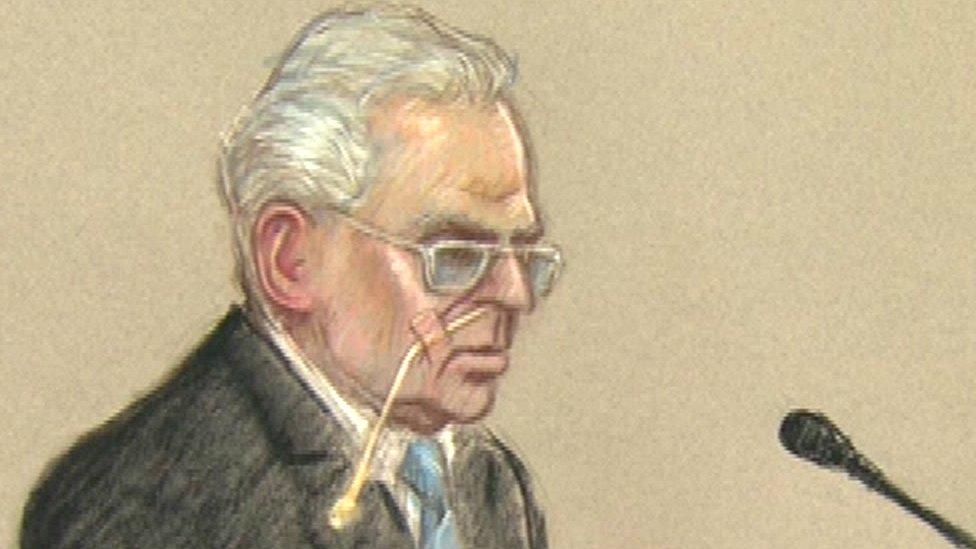
Brady last appeared before a mental health tribunal in 2013
Brady had been on successive hunger strikes since 1999, arguing he should be allowed to die, but had been force-fed because he was considered mentally ill.
He campaigned for several years to be moved from Ashworth to a Scottish prison where he would not be force-fed and would be allowed to die if he wished.
The Mersey Care Trust was unable to confirm the cause of Brady's death, but said he had been given oxygen for a while.
Brady was not found dead in his room, its spokesman said, but he was unable to confirm if anyone was with him when he died, adding: "Quite possibly. I don't know."
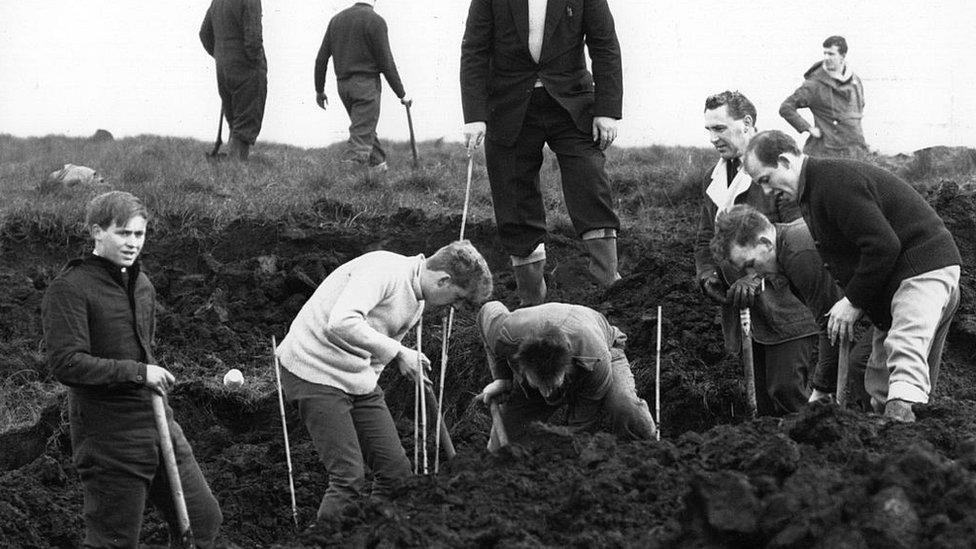
Police searches of the moor began in the 1960s, including this area where the body of Lesley Downey was found
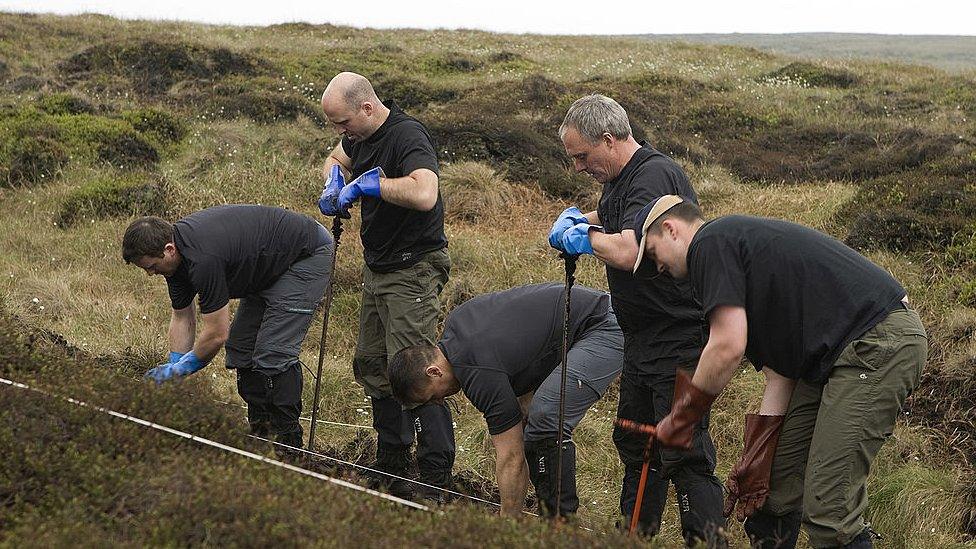
Searches have continued ever since - with the most recent taking place in 2009
- Published16 May 2017
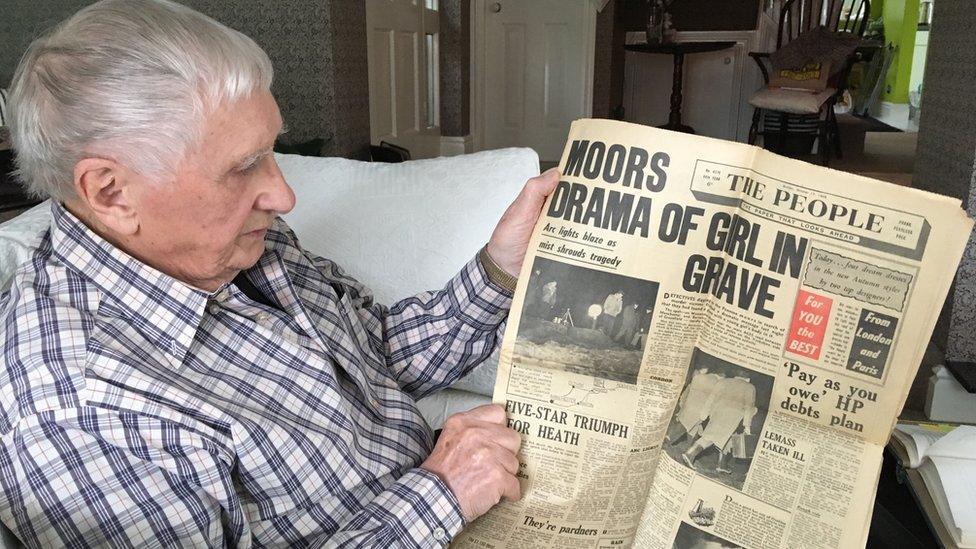
- Published16 May 2017
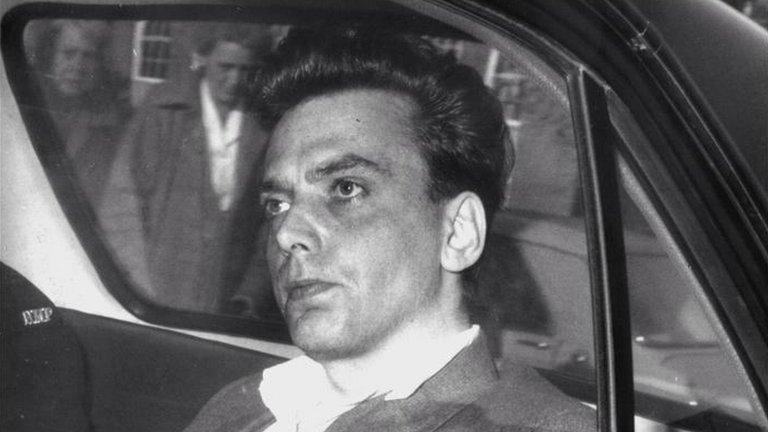
- Published16 May 2017
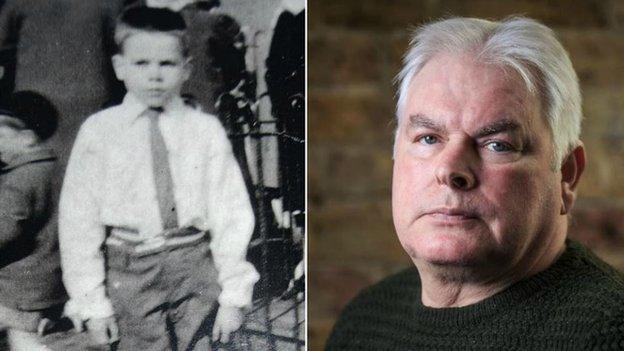
- Published16 May 2017
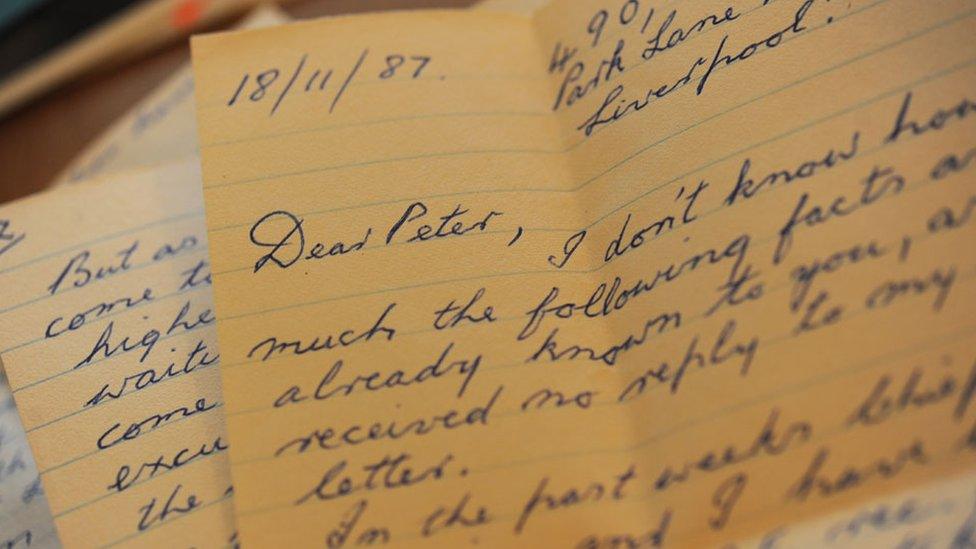
- Published20 February 2017
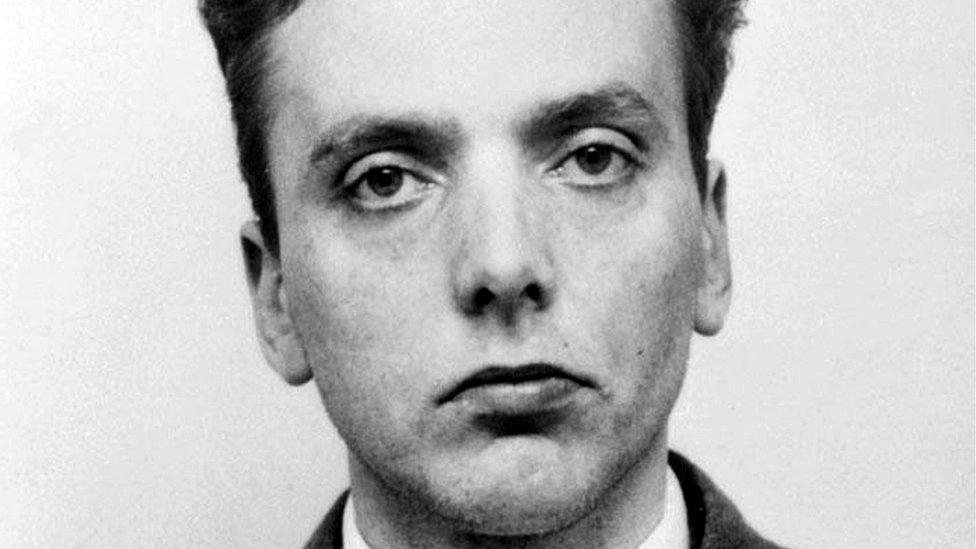
- Published18 February 2014
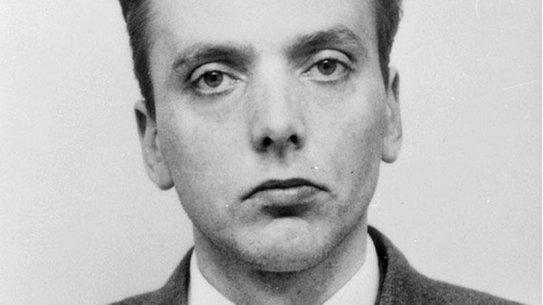
- Published24 January 2014
